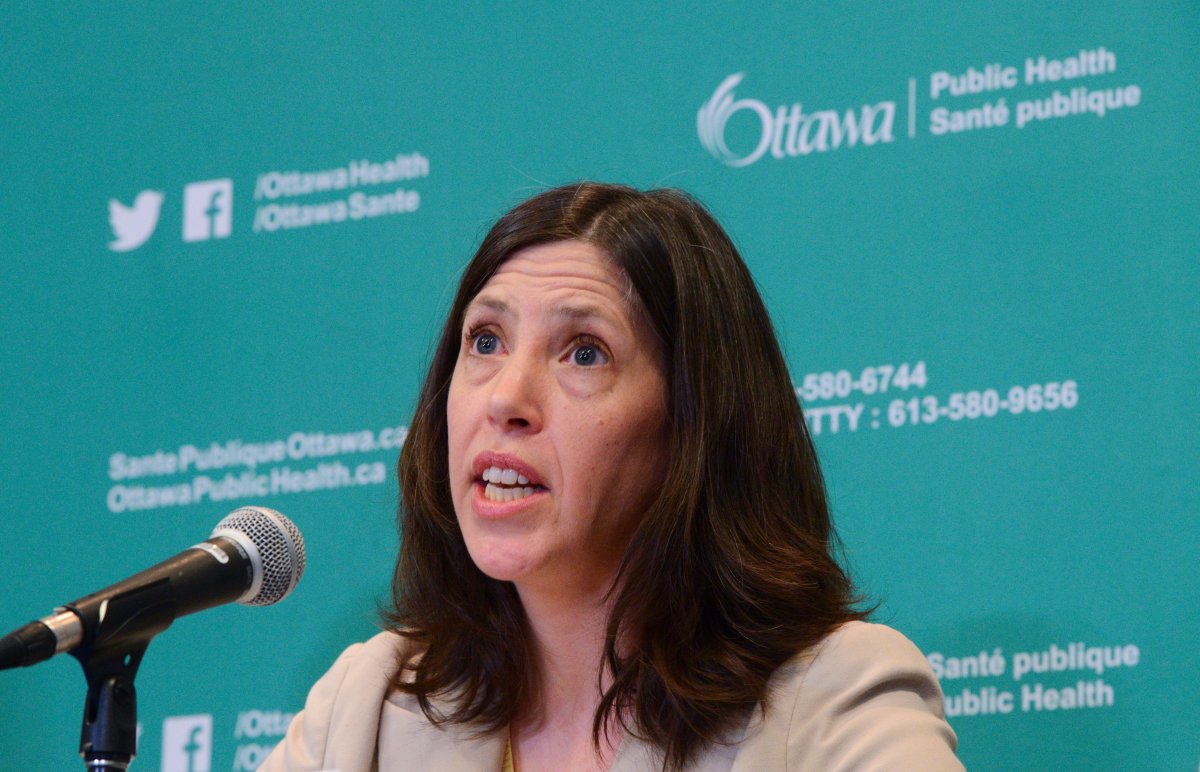Yes, you can have a drink with a neighbour if you stay two metres apart. No, you can’t play catch with your child in a local park.

These are among the “loopholes” Ottawa health officials sought to close during a call with members of the media on Wednesday afternoon, after the previous day’s conference spurred some confusion about what was permitted amid physical-distancing restrictions aimed at curbing the spread of the novel coronavirus.
Mayor Jim Watson joined Dr. Vera Etches, Ottawa’s medical officer of health, and other City of Ottawa staff to update the public on efforts to contain the spread of COVID-19 in the city.

Ottawa Public Health officials in a conference call Tuesday afternoon cautioned Ottawans about spending time with neighbours in their driveway or over a fence. That warning, officials clarified Wednesday, is not meant to discourage responsible socializing with neighbours, but rather to keep residents mindful about the risk of individual conversations escalating into small gatherings.
“If you and your neighbour are having a beer or a lemonade at the end of your driveway and you’re six feet, or two metres, apart, enjoy,” Watson said on Wednesday’s call.
Anthony Di Monte, Ottawa’s general manager of emergency and protective services, did highlight concerns with the city’s parks, which were officially closed to public use on March 27. While it’s OK to travel through parks, pedestrians are not permitted to linger there for any amount of time, lest they risk a fine.
Di Monte said parks attract people, and even a parent tossing a ball with their child can quickly lead to a small neighbourhood gathering. He and others on the call reminded members of the public that Ontario has made gatherings of more than five people illegal.
Additionally, park equipment is not being sanitized, putting individuals at risk of exposure to the novel coronavirus if they don’t heed the shutdown order.
“There are no exceptions to the rule, no matter how simple or harmless an activity may appear,” Di Monte said. “We need people to understand their actions can endanger others.”
While bylaw officers are empowered to use fines to enforce physical-distancing restrictions in Ottawa, Di Monte said only three per cent of calls result in a fine being handed out — oftentimes a warning will suffice. Between April 2 and April 14, Ottawa bylaw officers received more than 2,200 requests to address such concerns, with only 76 fines issued.
Watson said that if residents see anyone flouting physical-distancing recommendations in public, they should be “kind,” not “confrontational.”
- ‘Shock and disbelief’ after Manitoba school trustee’s Indigenous comments
- Canadian man dies during Texas Ironman event. His widow wants answers as to why
- Several baby products have been recalled by Health Canada. Here’s the list
- ‘Sciatica was gone’: hospital performs robot-assisted spinal surgery in Canadian first
Noting it’s been one month since she first asked Ottawa residents to start distancing themselves from others, Etches said these efforts are helping to make the coronavirus pandemic “manageable” in Ottawa.
Etches also acknowledged that residents might be feeling fatigued after the first month of physical distancing. Though she cautioned that the city hasn’t hit the peak of the curve yet, she said health officials are starting to think about the end of these measures and how to return “a little bit of freedom” to residents stuck at home.
She noted that, with the success of physical distancing in curbing the volume of COVID-19 cases in the city, Ottawa Public Health is expanding its criteria for who should get tested. While previously reserved solely for health-care workers, officials are now encouraging individuals working as caregivers and other critical infrastructure workers with a fever, cough or difficulty breathing to get a test done at the Brewer Arena assessment centre.





Comments